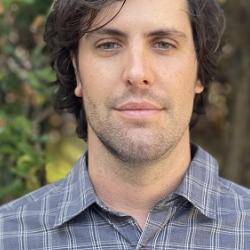Biography
I hold a Bachelor's degree in Biological Sciences from the University of Sao Paulo, Brazil (2006-2011). I continued my academic journey at the same institution, obtaining an MSc (2013-2015) and a PhD (2017-2022) under the supervision of Professor Jean-Paul Metzger in the Landscape Ecology and Conservation Lab. Between my MSc and PhD studies (2015-2017), I worked as a researcher for ScenNet, an international collaboration project aimed at strengthening collaborations among scientists working on scenarios of biodiversity and ecosystem services, providing support to the Intergovernmental Science-Policy Platform on Biodiversity and Ecosystem Services (IPBES). After completing my PhD, I spent two years at the International Institute for Sustainability (IIS), a Brazilian NGO that utilizes a multicriteria spatial planning framework to prioritize conservation and restoration actions. In April 2024, I joined the Conservation Science Group and 4C as a Research Associate under the supervision of Andrew Balmford. In this role, I collaborate with re.green, a large-scale restoration company.
Research
My research focuses on understanding how essential ecosystem services (or nature's benefits to people) are maintained in agricultural landscapes under various arrangements. I explore how to reconcile biodiversity conservation with agricultural production, examining different conservation strategies such as command-and-control policies and voluntary mechanisms like agricultural certification, along with their associated costs and benefits.
As a researcher at the International Institute for Sustainability (IIS), I specialized in applying spatial optimization algorithms to restoration and conservation land use/cover scenarios to evaluate their outcomes for biodiversity and carbon. In my current position, I aim to enhance the measurement of outcomes in tropical forest restoration projects.
My research with 4C and re.green will focus on four core aspects: biodiversity, leakage, additionality, and permanence.
Publications
Cerullo, G., Worthington, T., Brancalion, P., Brandão, J., d’Albertas, F., Eyres, A., Swinfield, T., Edwards, D., Balmford, A., 2024. Conflicts and opportunities for commercial tree plantation expansion and biodiversity restoration across Brazil. Global Change Biology 30, e17208.
Cesar de Oliveira, S.E.M., Nakagawa, L., Lopes, G.R., Visentin, J.C., Couto, M., Silva, D.E., d’Albertas, F., Pavani, B.F., Loyola, R., West, C., 2024. The European Union and United Kingdom’s deforestation-free supply chains regulations: Implications for Brazil. Ecological Economics 217, 108053.
d’Albertas, F., Ruggiero, P., Pinto, L.F.G., Sparovek, G., Metzger, J.P., 2023. Agricultural certification as a complementary tool for environmental law compliance. Biological Conservation 277, 109847.
d’Albertas, F., Sparovek, G., Pinto, L.-F.G., Hohlenwerger, C., Metzger, J.-P., 2023. Yield increases mediated by pollination and carbon payments can offset restoration costs in coffee landscapes. One Earth.
d’Albertas, F., González-Chaves, A., Borges-Matos, C., Zago de Almeida Paciello, V., Maron, M., Metzger, J.P., 2021. Private reserves suffer from the same location biases of public protected areas. Biological Conservation 261, 109283.
Acosta, A.L., d’Albertas, F., Leite, M. de S., Saraiva, A.M., Metzger, J.P.W., 2018. Gaps and limitations in the use of restoration scenarios: a review. Restoration Ecology 26, 1108–1119.
d’Albertas, F., Costa, K., Romitelli, I., Barbosa, J.M., Vieira, S.A., Metzger, J.P., 2018. Lack of evidence of edge age and additive edge effects on carbon stocks in a tropical forest. Forest Ecology and Management 407, 57–65.
Metzger, J.P., Esler, K., Krug, C., Arias, M., Tambosi, L., Crouzeilles, R., Acosta, A.L., Brancalion, P.H., d’Albertas, F., Duarte, G.T., Garcia, L.C., Grytnes, J.-A., Hagen, D., Jardim, A.V.F., Kamiyama, C., Latawiec, A.E., Rodrigues, R.R., Ruggiero, P.G., Sparovek, G., Strassburg, B., Saraiva, A.M., Joly, C., 2017. Best practice for the use of scenarios for restoration planning. Current Opinion in Environmental Sustainability 29, 14–25.

